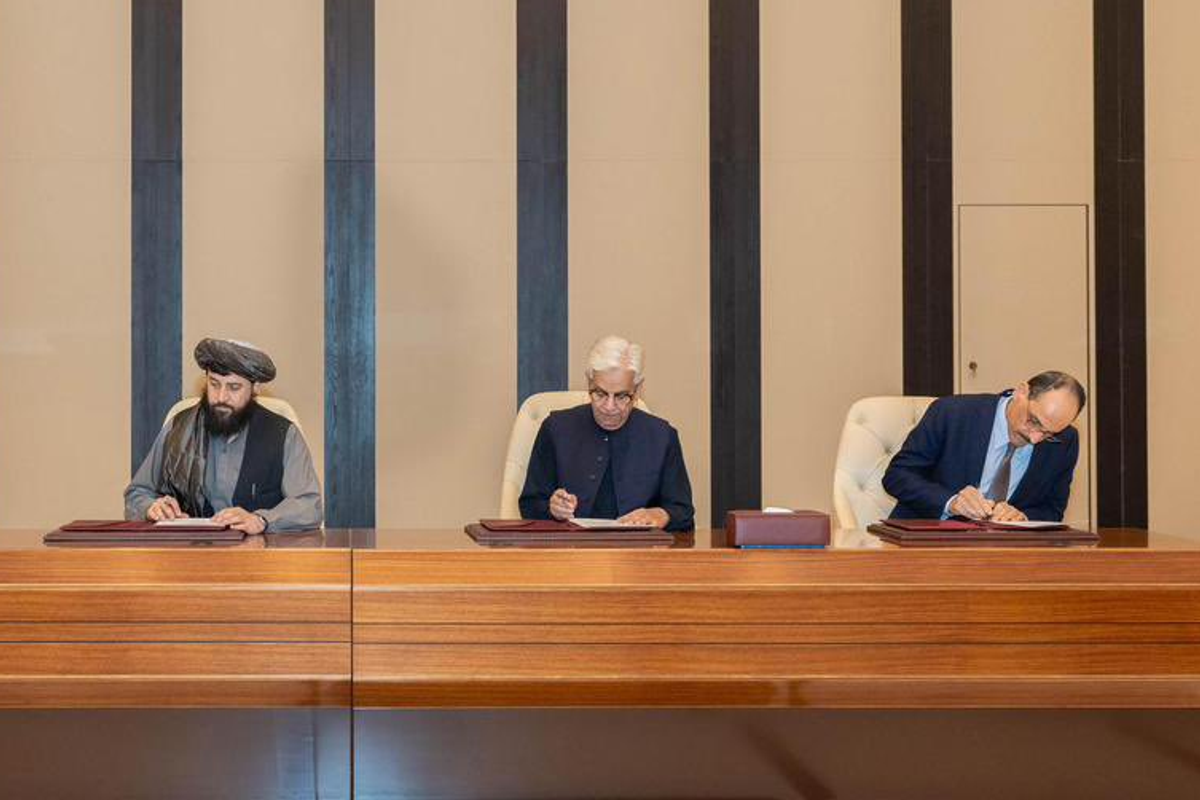Taliban blames Pakistan for failed Istanbul talks
Islamabad officials says talks broke down after Taliban presented 'irrational and inconsistent demands'

Aamir Abbasi
Editor, Islamabad
Aamir; a journalist with 15 years of experience, working in Newspaper, TV and Digital Media. Worked in Field, covered Big Legal Constitutional and Political Events in Pakistan since 2009 with Pakistan’s Top Media Organizations. Graduate of Quaid I Azam University Islamabad.

Peace talks between Afghanistan and Pakistan ended inconclusively on Friday, with both sides accusing each other of derailing negotiations aimed at easing rising cross-border tensions.
The two-day discussions, held in Istanbul on Nov. 6–7 and mediated by Turkey and Qatar, marked the third round of bilateral efforts following deadly clashes in early October that killed soldiers and civilians on both sides.
Afghan Taliban accuse Pakistan
The Islamic Emirate of Afghanistan, speaking through spokesperson Zabihullah Mujahid, said Pakistan adopted an “irresponsible and non-cooperative attitude” that caused the talks to fail.
“The Pakistani delegation attempted to shift all responsibilities regarding its security to the Afghan government while refusing to take responsibility for either country’s safety,” Mujahid said.
The Taliban emphasized that Afghanistan will not allow its territory to be used against another country and reaffirmed that it considers the people of Pakistan as “brothers,” expressing willingness to cooperate within Afghanistan’s capabilities.
Pakistan rejects Afghan claims
Officials in Islamabad said the talks broke down after the Taliban presented “irrational and inconsistent demands” that diverged from agreements reached in previous sessions. National Security Adviser Lt. Gen. Asim Malik and DG ISI left Istanbul following the inconclusive talks.
A Pakistan Foreign Office spokesperson said Islamabad presented “evidence-based, justified, and logical demands” to end cross-border terrorism and protect its citizens. Officials also cautioned that social media reports from Afghan accounts should be treated as “speculation or deliberate disinformation.”
Mediation and fragile progress
Turkey and Qatar mediated the Istanbul round after previous talks in Doha produced a fragile ceasefire and an understanding to establish a verification mechanism. Despite the deadlock, both sides expressed appreciation for the mediators.
Pakistan’s Information Minister Attaullah Tarar reiterated that Afghanistan must take responsibility for controlling militancy, stating that Islamabad remains committed to dialogue.
Setback for regional peace
The failure of the Istanbul talks highlights ongoing tensions amid a surge in cross-border militant attacks targeting Pakistani security forces and civilians. Both countries remain formally committed to continued dialogue, but experts say tangible progress is unlikely until concrete security measures are implemented on both sides.










Comments
See what people are discussing